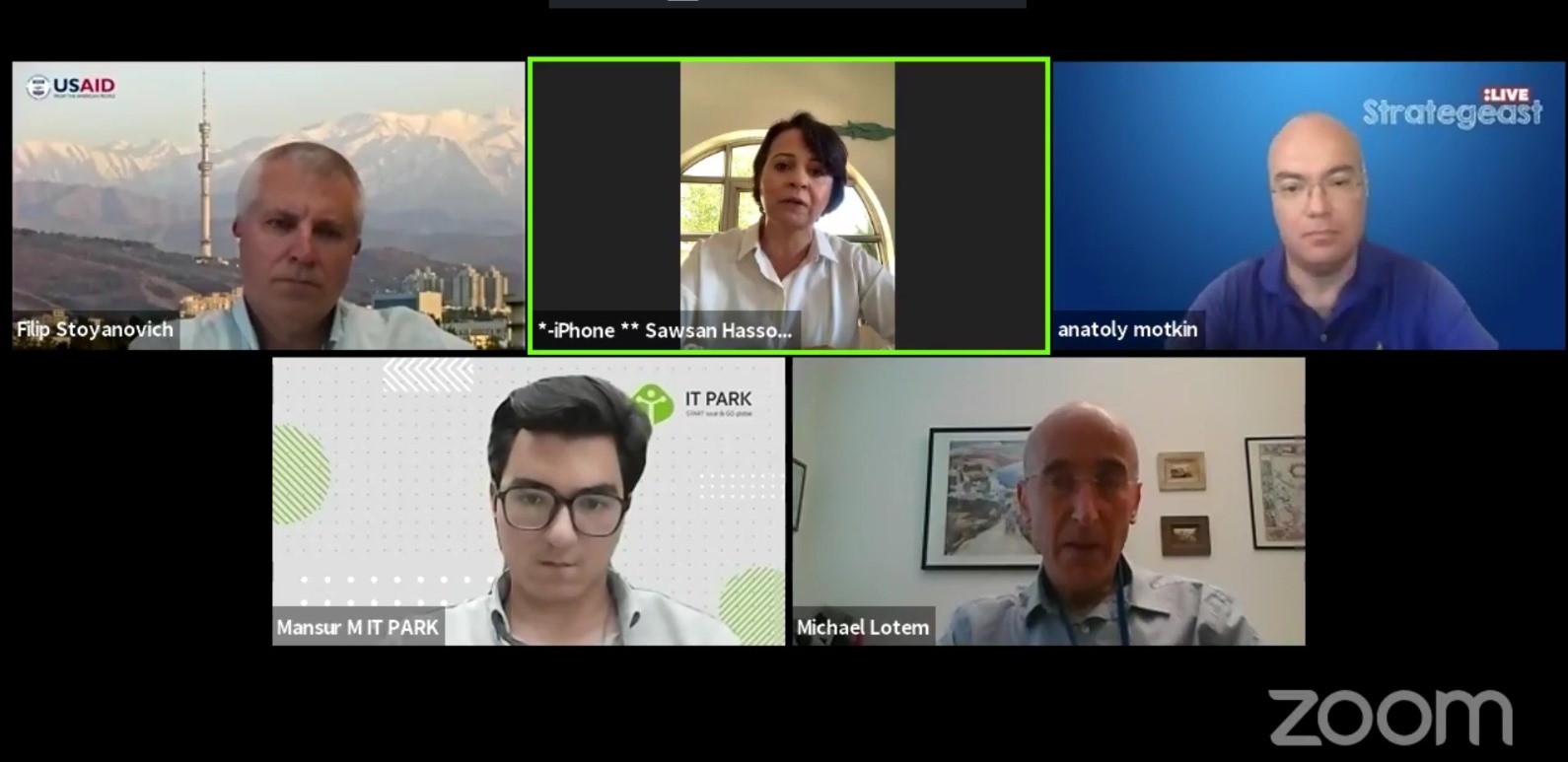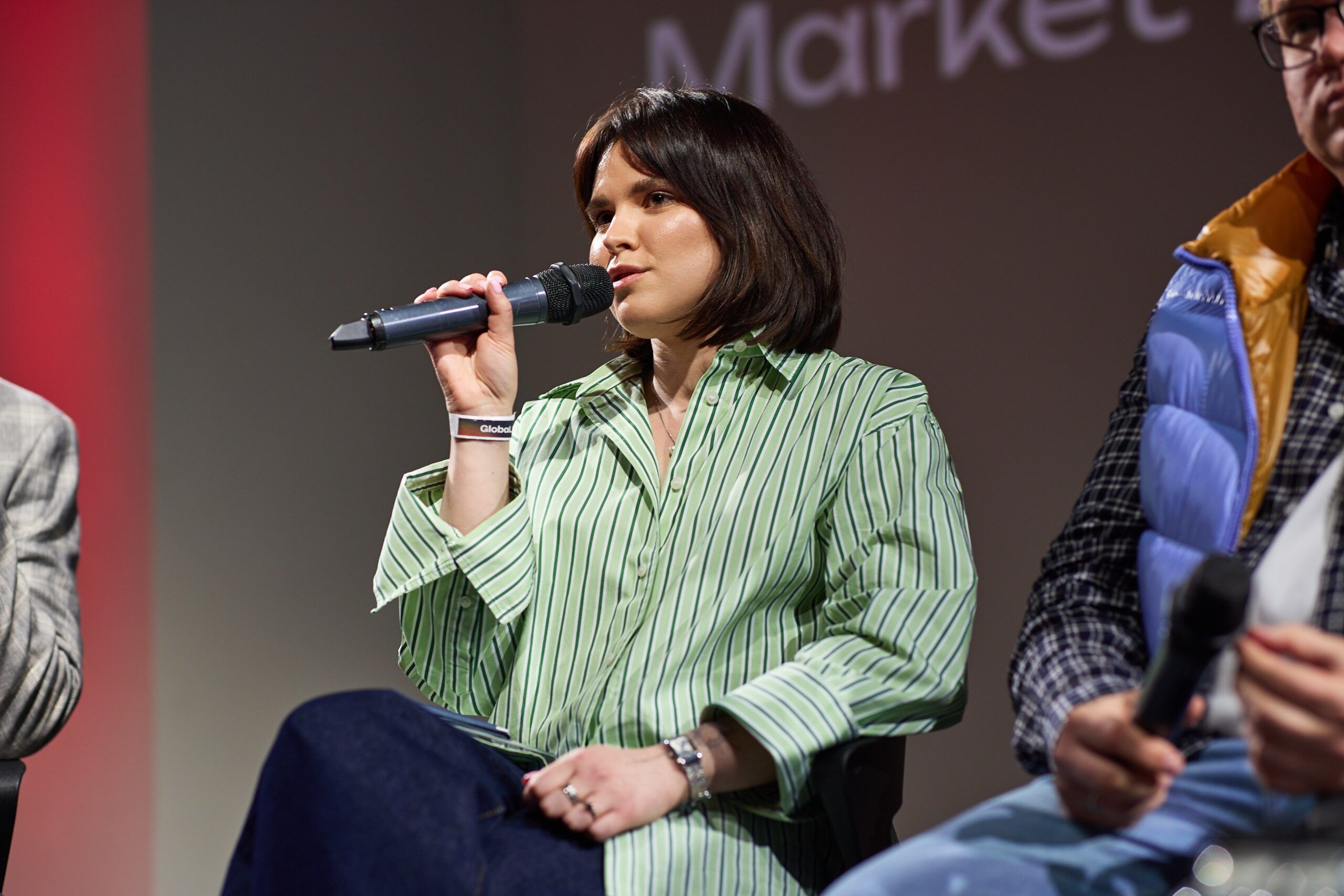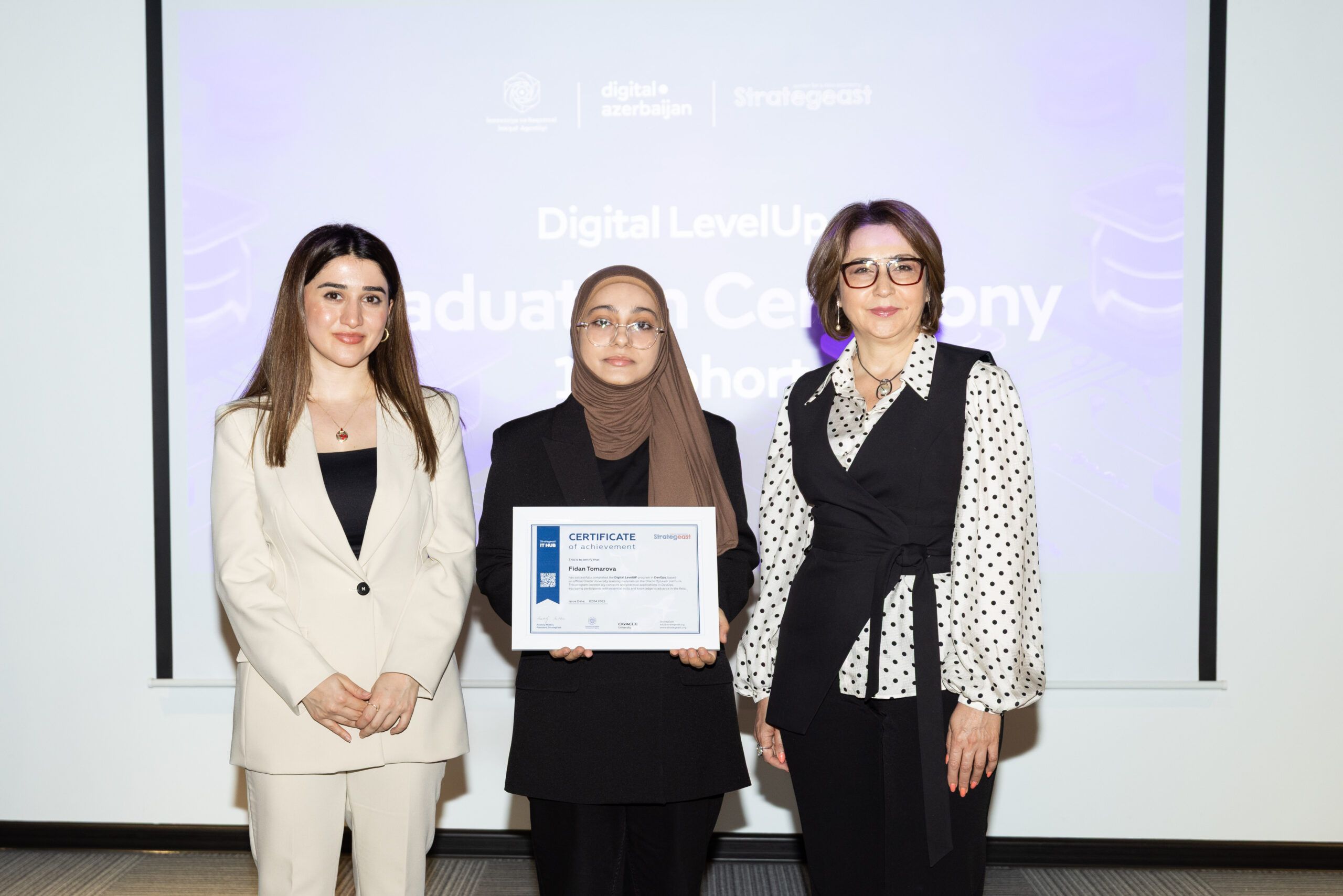The normalization agreement between Israel and the United Arab Emirates has kick-started tourism and a number of significant business arrangements and investments in a remarkably short period of time. But the opportunity is there for so much more beyond the borders of just these two countries. This new relationship has the potential for using the combined economic know-how and innovative mindset to work together by implementing large-scale development projects in the majority of Muslim post-Soviet countries in Central Asia and Azerbaijan. The benefits for both Israel and the UAE, as well as the potential for these countries, could be enormous. StrategEast.Live panel discussion “Abraham Accords as an opportunity for Central Asia and Azerbaijan transformation” participants discussed the new opportunities in the region.
“The Israeli humanitarian project MASHAV has been working in Central Asia for 30 years, helping to solve such problems as water supply, the development of agriculture, medicine,” says Ambassador Michael Lotem, Director of Economic Department, Asia, CIS, Ministry of Foreign Affairs of Israel. “Our project often works in cooperation with other organizations such as USAID, UN. Therefore, I am sure that we can collaborate with new partners in these projects. First of all, in projects on alternative energy, the importance of which is now recognized in Central Asia.”
“We are already working in partnership with the UAE. This allows us to copy and adapt best practice in the field of learning and avoid brain drain,” says Mansur Mamadjanov, International Operations Manager of the Investment and Export Office at IT Park, Uzbekistan. “American partners help organize training programs for women entrepreneurs. We have incubated 60 startups on this platform. With Israel, as one of the leading companies, we need to establish links with leading Israeli incubators and foundations so that our startups can participate in their programs. Two things are important: intellectual assistance and financial investments in our projects – this is the arena for future cooperation.”
Sawsan Hasson, Director of Middle East Economic Relations Department, Middle East Division at the Ministry of Foreign Affairs of Israel, believes that speaking about regional cooperation, one should start with the Abraham Fund, established by Israel, the UAE and the United States along with the conclusion of peace agreements. This should be a great chance for cooperation and mutual investment in IT companies and startups. The second good opportunity is the EXPO exhibition, which will be held in Dubai this year, and this is a chance to meet for all regional players interested in implementing joint projects.
Filip Stoyanovich, Chief of Party, USAID’s Future Growth Initiative (FGI) for Central Asia sees great prospects in the cooperation of Israel and the UAE in the development of IT in Central Asia. “Both Israel and the UAE could make a great contribution to the development of the IT industry in Central Asia. This can be the construction of a startup ecosystem, mentorship, and educational programs. Generally, Dubai is a target market for the Central Asia region. The region is strategically located between Russia, China, Afghanistan and Pakistan. And as a hub for this region, digital transformation is very important. We at USAID implement many projects in the field of IT – we train women entrepreneurs in the IT park of Uzbekistan, we help Tajikistan to create an IT industry, we have projects in Kyrgyzstan and Kazakhstan. And I believe that the joint efforts of Israel and the UAE can be integrated into any of these projects and can create additional impetus for the IT industry in the region.”
The panel discussion was moderated by Anatoly Motkin, President of StrategEast center for a new economy, author of The Jerusalem Post article “Stabilization through digitalization and normalization in Asia”.
StrategEast.Live is a series of online panel discussions launched by StrategEast in 2020 to continue the conversation on how technology can lead to an overall transformation in Eurasia. During these events, the esteemed guests put forward ideas that facilitate the further development of a knowledge-driven economy in the region.




